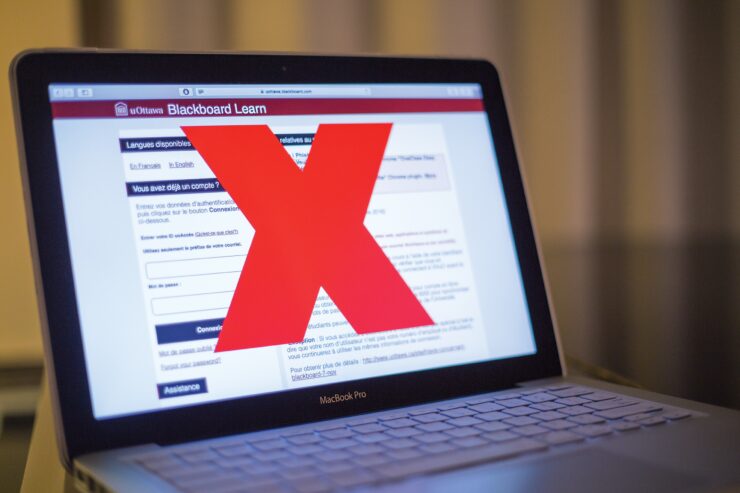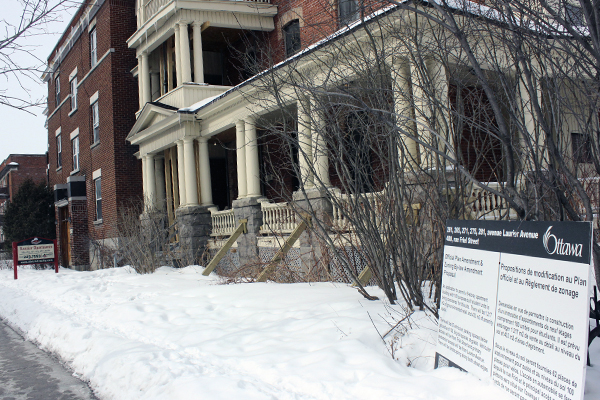One of the university’s largest student associations was forced to seek out missing funds
With the start of fall classes right around the corner, many students will be paying tuition and, in doing so, becoming acquainted with the newest step in the process: choosing whether to opt-out of non-essential fees.
But for one group of students, this new step brought them face-to-face with what they say is a serious problem after they were missing an optional student association fee when paying tuition.
Certain students under the International, Political and Policy Studies Student Association (IPPSSA) — the organization that represents undergraduates in political science, public administration, international studies and modern languages (EIL), as well as general social sciences — report an administrative error has caused confusion as to what fees they are being asked, or rather not asked, to pay.
A product of the Student Choice Initiative, a change to post-secondary fees made earlier this year by the Ontario government, the “Opt-out of optional services” application on the University of Ottawa’s student portal (uoZone) gives a list of fees students can choose not to pay.
Many of these fees are the same for students across disciplines, including the “Student Life” fee levied by the University of Ottawa Students’ Union (UOSU), or fees in support of campus media.
Other fees include levies for individual student associations (such as the IPPSSA) and differ from program-to-program. This is where IPPSSA faced a problem.
In an interview with the Fulcrum, Carolina Muñoz Jasa, vice-president academic (public administration) at IPPSSA, explained how students enrolled in public administration were missing the optional IPPSSA charge on their statements of account.
What showed up on uoZone for other IPPSSA students as “Political Science Student [Association]” was nowhere to be found for herself or any other public administration students she heard from.


The fee in question is levied on behalf of the faculty of social sciences and then handed over directly and entirely to IPPSSA, as per an existing agreement. Coming in at only $4 per full-time student, it may not seem like a big deal, but as Muñoz Jasa explained, IPPSSA’s fee is critical.
“Especially for a smaller program like public administration, almost 100 per cent of our budget depends on that opting-in [fee],” she explained. “Smaller events that students who don’t necessarily enjoy bigger events would want to participate in could be in danger because of a big chunk of the budget being taken out.”
As early as Aug. 12, Muñoz Jasa reached out to the university’s InfoService, confident that she had found a problem needing a speedy fix. However, the initial response she received left her disappointed.
“It was kind of concerning, because they didn’t get the difference between our fee and the student union fee,” she said, referring to a separate fee levied by the UOSU and distributed in part to student associations. “So they were giving me incorrect information, telling me the fee did show up… So already I can tell there’s been a huge miscommunication.”
In the following days, IPPSSA began working with the UOSU to prompt action from the university. The Fulcrum obtained a series of emails between leaders in both organizations and various university administrators, which detail a long and complicated exchange.
For example, on Aug. 16, an administrator from the registrar’s office told UOSU’s advocacy commissioner Sam Schroeder that her office acknowledged the issue but that no further steps could be taken until a particular employee returned the following week.
It was not until Aug. 21 that the same office replied with a list of programs being charged the IPPSSA fee. Public administration was missing.
The administrator suggested that IPPSSA may be looking to add new programs to the list, in which case “it needs to be clearly indicated in the official Constitution of the Association… and signed by its members.”
In response, IPPSSA president Yanaminah Thullah sent the registrar’s office a detailed email in which she stated “Public Administration students are not a ‘new group of students.’ They have existed within our association, constitution, on our executive committee… for several years now.”
Furthermore, Thullah called for the issue “to be rectified as soon as possible,” citing concerns that “if students are not being charged at all, we lose upwards of $3,000+ worth of student fees that goes towards hosting our events and services for our members.”
Later that day, the registrar’s office confirmed to Thullah that they would begin the process of adding the charge to the accounts of public administration students. At that time, the situation did not appear to be considered an error.
When the Fulcrum reached out to the university for comment, a spokesperson stated the registrar’s office “[was] made aware of this situation earlier today [Aug. 21] and [is] working to address it. Therefore, the funding that IPPSSA is due to receive from its member-students will not be negatively affected.”
The university did not respond to further written questions, including what specific measures would be taken, and why the registrar’s office was not made aware of the situation until more than a week after students first brought it to the attention of administrators.
However, on Aug. 23, the university issued an email to all students in public administration informing them that “a correction has been made to [their] statement of account.” Students were asked “to pay the fee at [their] earliest convenience or opt-out of this service.”

In a statement to the Fulcrum on Aug. 27, Thullah expressed that “IPPSSA is satisfied with the solution brought forward by the University to solve the current issue with [public administration] students fees.”
That said, she highlighted her ongoing concerns over the whole ordeal.
“IPPSSA is fearful that the sheer inconvenience of students paying our $4 association fee after they’ve paid tuition might result in these students opting out instead,” she wrote. “This could’ve been mitigated had the university prioritized our complaints when they were first raised… and then applied the fees before tuition was initially due.”
Thullah added IPPSSA will continue investigating what may be further discrepancies in how students in its various programs are classified and charged.
“IPPSSA definitely plans on working with the Office of the Registrar, the faculty, and/or any other parts of the university to address issues that may have occurred in the past and moving forward.”
This story will be updated as new information becomes available.





